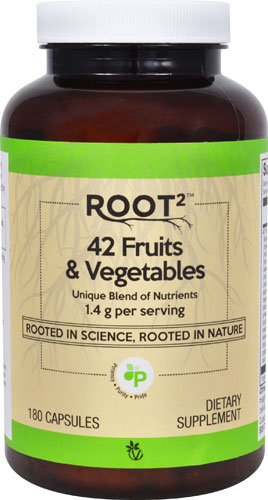When faced with injury, cellular damage or disease, the body responds with one of two types of inflammation: acute or chronic. Acute inflammation, part of the body’s initial response to an injury or foreign pathogen, is immediate and involves a strong immune response that lasts only a few days. Chronic inflammation, on the other hand, is a persistent response to autoimmune reactions or foreign pathogens such as viruses.
What is inflammation?
Chronic inflammation also involves an immune response, in addition to other cellular and biochemical signals known as cytokines, growth factors and enzymes. These are known to cause damage to healthy tissue with prolonged exposure. Many diseases, such as cancer, cardiovascular disease, rheumatoid arthritis and celiac disease, are linked to chronic inflammation in the body.
Luckily, we can fight inflammation through healthy diet for inflammation and lifestyle changes. First and foremost, any anti-inflammatory diet needs to be built on a healthy foundation. This includes a balance of lean proteins and healthy fats with a wide range of colorful fruits, vegetables, grains and legumes.
One way to do this is to follow the Mediterranean diet, known for its healthy unsaturated fats, lean meats and antioxidant-rich fruits and vegetables. Not only is this a wonderful way of eating overall, research also validates its anti-inflammatory potential. In a study published in 2004 in the Journal of the American Medical Association, participants who followed the Mediterranean diet for two years had lower markers of inflammation. Similar results were found in another 2004 study published in the Journal of the American College of Cardiology.
Once the foundation is set, you can go an extra step by adding in specific nutrients and foods to promote a healthy inflammatory response in the body. One of the most researched is omega-3 fatty acids, which are polyunsaturated fats found in foods such as wild salmon, tuna, mackerel, walnuts, chia, flax and canola oil.
A diet that includes foods rich in the antioxidants vitamin C, vitamin E and beta-carotene is also known to promote a healthy inflammatory response in the body. In addition, lycopene, ursolic acid, lutein and other phytochemicals in plant foods can provide protection. Herbs and spices including turmeric and ginger are also known to have anti-inflammatory properties.
Ready to start your own personal battle to reduce inflammation? Here are some tips to get you started:
1. Follow a Mediterranean-style diet, rich in healthy fats like fish, olive oil and canola oil; colorful fruits and vegetables; whole grains such as whole wheat pasta and brown rice; and small amounts of lean meats such as skinless poultry breast.
2. Eat more omega-3 fatty acids from sources such as wild salmon, tuna, mackerel, walnuts, flax, canola oil and omega-fortified eggs. Or talk to your physician about taking fish oil supplements that contain both EPA and DHA.
3. Add monounsaturated fat from sources such as avocado, olive oil and almonds.
4. Consume more antioxidant-rich fruits and vegetables full of vitamins C and E and beta-carotene. Vitamin C can be found in citrus fruits, green and red pepper, kiwi, tomatoes and broccoli. Vitamin E can is in wheat germ, vegetable oils, nuts and seeds. Look to carrots, sweet potatoes, cantaloupe, red pepper, mango and broccoli for beta-carotene.
5. Focus on the colorful fruits and vegetables for a hefty supply of phytochemicals such as lycopene (tomatoes, watermelon, grapefruit); lutein (dark green leafy vegetables) and ursolic acid (cranberries, prunes, apples)
6. Cook with flavorful herbs and spices such as ginger and turmeric. Ginger can be added to soups, stir fry, and homemade tea. Turmeric is used to make curry, casseroles, soups and stews
7. Avoid processed foods, convenience foods and fast foods, which do not contain the healthful properties of an anti-inflammatory diet and contain excessive sodium, preservatives and saturated fats.
Anti-Inflammatory Diet Meal Plan
Breakfast: Add ½ cup berries and ¼ cup shaved almonds to hot or cold cereal.
Snack: Eat fruit with low-fat or nonfat yogurt or cottage cheese.
Lunch: Have a salad with Romaine lettuce and at least three other vegetables that you enjoy, topped with beans or unsalted plain nuts and olive oil as a dressing.
Snack: Carrots dipped in hummus.
Dinner: Have a stir-fry (using canola oil) including chicken; ground or grated ginger; and red, yellow, and green peppers over brown rice.
Snack: Make a fruit smoothie with banana, strawberries, skim milk or nonfat yogurt and a tablespoon of ground flax seed.




